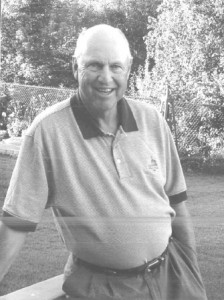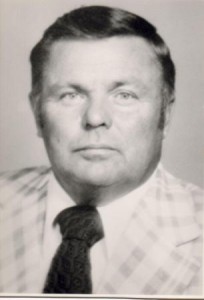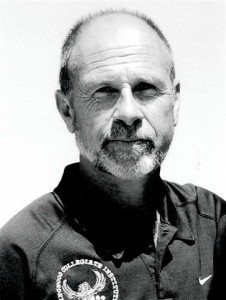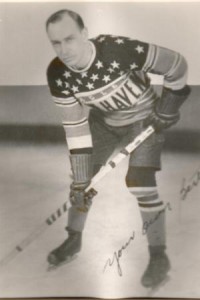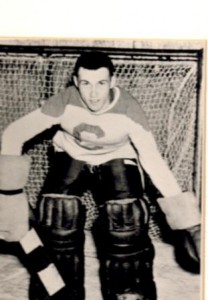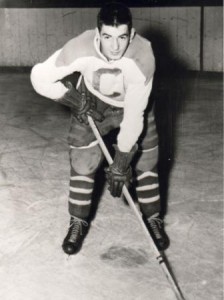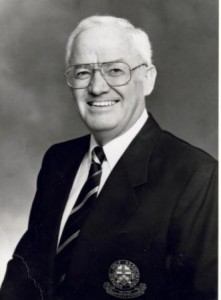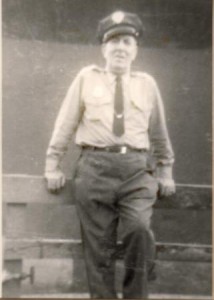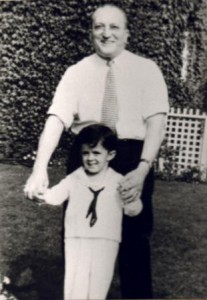Considering all of the accomplishments in the golfing career of local resident Brian
Jeffery, one figure stands out when all of the numbers are compiled. Twenty-Eight (28)
holes-in-one! He’s done it at the famed Turnberry links in Scotland, twice
within two weeks earlier this year while wintering in Florida, and several
times on his home Blue Mountain Golf & Country Club. “There has to be
some skill involved, but largely it’s a lucky shot,” said the 60-year-old
Jeffery, who placed 12th at the 2004 Canadian senior amateur championships in North Bay, prior to his Induction.
Some luck and a lot of practice has helped Jeffery become the top-ranked senior amateur player (55 yrs. & up) in Ontario. He was introduced to the sport at the age of two by his grandfather, Bill Thompson, at the old Collingwood Golf Club. As a teen, he won several area tournaments and captured the Simcoe County Invitational four years running (1964-67). His father Don managed the Collingwood arena for 25 years and is in the Collingwood Sports Hall of Fame for his years of hockey at the OHA Junior and Senior levels.
At just 140 pounds, Brian played junior hockey but preferred sticks of the iron variety. Jeffery would go on to work 30 years and one day at Bell Canada before retiring and getting into the senior golf ranks. Among his golfing achievements, was runner-up at the 1999 Canadian Senior Match Play Championships, 3x Ontario senior amateur title (2002, 2005 & 2008) and taking the National Senior Association title in 2003. Locally, he has claimed the Scenic Caves Invitational and Blue Mountain Golf & Country Club titles seven times each.
Jeffery credits long-time playing partner Don Cook for pushing him to be a sharper player and competitor. “I tend to get ahead of myself sometimes,” joked Jeffery. “Just because you can see the clubhouse, it doesn’t mean you’ve won anything yet. I remember I was leading a tournament in Midland by five strokes with five holes to play and then made a 10 on one hole. Sure I lost that tournament, but I learned a lot from the experience and it helped me later.”
This evening, October 23, 2004, the Collingwood Sports Hall of Fame welcomes Brian Jeffery as an enshrined member for his Athletic achievements.

